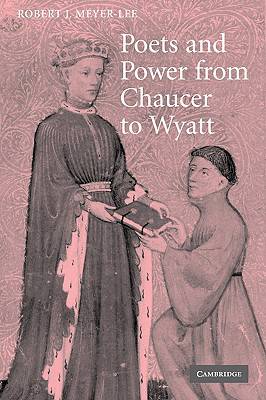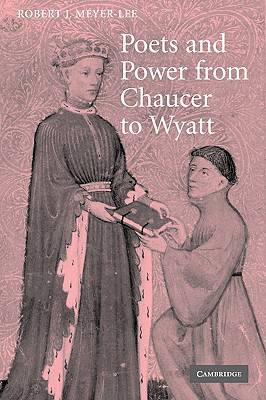
Bedankt voor het vertrouwen het afgelopen jaar! Om jou te bedanken bieden we GRATIS verzending (in België) aan op alles gedurende de hele maand januari.
- Afhalen na 1 uur in een winkel met voorraad
- In januari gratis thuislevering in België
- Ruim aanbod met 7 miljoen producten
Bedankt voor het vertrouwen het afgelopen jaar! Om jou te bedanken bieden we GRATIS verzending (in België) aan op alles gedurende de hele maand januari.
- Afhalen na 1 uur in een winkel met voorraad
- In januari gratis thuislevering in België
- Ruim aanbod met 7 miljoen producten
Zoeken
Omschrijving
In the early fifteenth century, English poets responded to a changed climate of patronage, instituted by Henry IV and successor monarchs, by inventing a new tradition of public and elite poetry. Following Chaucer and others, Hoccleve and Lydgate brought to English verse a style and subject matter writing about their King, nation, and themselves, and their innovations influenced a continuous line of poets running through and beyond Wyatt. A crucial aspect of this tradition is its development of ideas and practices associated with the role of poet laureate. Robert J. Meyer-Lee examines the nature and significance of this tradition as it developed from the fourteenth century to Tudor times, tracing its evolution from one author to the next. This study illuminates the relationships between poets and political power and makes plain the tremendous impact this verse has had on the shape of English literary culture.
Specificaties
Betrokkenen
- Auteur(s):
- Uitgeverij:
Inhoud
- Aantal bladzijden:
- 316
- Taal:
- Engels
- Reeks:
- Reeksnummer:
- nr. 61
Eigenschappen
- Productcode (EAN):
- 9780521117067
- Verschijningsdatum:
- 30/07/2009
- Uitvoering:
- Paperback
- Formaat:
- Trade paperback (VS)
- Afmetingen:
- 152 mm x 229 mm
- Gewicht:
- 462 g

Alleen bij Standaard Boekhandel
+ 141 punten op je klantenkaart van Standaard Boekhandel
Beoordelingen
We publiceren alleen reviews die voldoen aan de voorwaarden voor reviews. Bekijk onze voorwaarden voor reviews.









